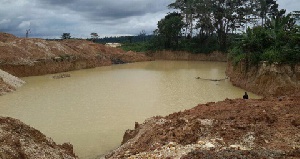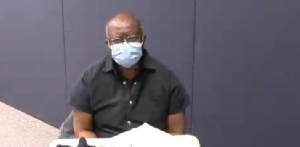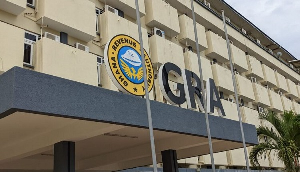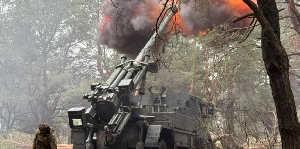This week, the threat of the imminence of a major irreversible water crisis in Ghana resurfaced. The emphasis, this time, has been on the contribution of galamsey activities to the pollution of our water-bodies.
This column returns to the issue not because the writer has any hopes of attracting attention and action from the powers that control our lives in this country. I do so only to bare my sad visage to the nation and shed a few tears.
The situation is hopeless because the government’s excuse for the inaction is that “the people are armed.” My question is: Who has better arms than the Ghana Armed Forces? Someone says, “We should be careful because lives are involved.” Really? The lives of a bunch of greedy few against the lives of 25 million citizens?
I am calling for A NATIONAL WEEK OF WEEPING. Yes, tears and gnashing of teeth in anticipation of our collective death. During that week, I expect all Ghanaians to be out in the streets in a massive demonstration of people’s anger. We shall march, some to Flagstaff house, some to Parliament, some to the Supreme Court buildings and some to the National House of Chiefs. Dress Code: Black and Red. All day long throughout that week, all radio and television stations will suspend normal broad/telecast and play martial and funeral dirges.
We need to save this nation from death. The agents of death are our elected leaders, namely the elected President of Ghana, his appointees and our elected MPs; of course, not forgetting our traditional rulers—all of whom are in bed with, or live in dread of, these packs of lawless citizens filled with and actuated by unbridled avarice.
In returning to the issue, I will repeat excerpts from two articles I wrote for this column.
On September 17, 2015, I wrote under the headline, ‘SOON: GHANA TO IMPORT WATER!’ based on an interview with Dr Joseph Ampofo, Director of Water Research.
Excerpts:
‘Hear Dr Ampofo: “The next crisis to hit this nation after the ‘Dumsor’ is the water crisis”.
‘As I write, the Pra River is almost beyond redemption, destroyed by galamsey. Koforidua cannot use the Densu River: it has been so polluted that the only way Ghana Water Company Limited (GWCL) can supply water to the Eastern Regional capital and surroundings is for it to pump water from Kpong’.
Remember the pre-2005 Cape Coast water crisis? The chiefs said it was the anger of the gods. No sooner had the Brimsu River been dredged (with donor funds) than the Cape Coast crisis ended —no libations were poured, no pacifications offered. It had been the result of years of siltation, a purely human problem! The Birim River is now virtually not drinkable. Indeed, the extent of pollution is so serious that it cannot even be used to water seedlings in nurseries! Today, the Volta River, especially the Black Volta River, is very muddy –polluted, almost past salvation.
‘Speaking in tongues, not very much unlike a prophet’s, (Dr Ampofo) warns: “A time is coming – and it looks like sooner than we had anticipated - when we (Ghanaians) shall see water but we cannot use it.”
‘(Dr Ampofo’s) Arithmetic is what got to me. “What is the price of one gallon of petrol today?” he asks. “Compare that to the price of the small 0.5 litre bottled water. What it means is that in a few years from now, Ghanaians would be paying as much for water as for petrol!”
In my second article, published on April 23, 2016, I reported from a seminar organised by the Council for Scientific and Industrial Research (CSIR) at which the Deputy Chief of Staff was given time to share the heart of government on the issue.
Confronted with examples from Tarkwa in the Western Region, where the hand of a researcher suddenly developed rashes when he dipped it in water fetched from a community standpipe - the result of arsenic deposits in the water; Bogoso, where scientists from Soil Research Institute tested bread samples in the area and discovered the presence of mercury, and other mining areas where vegetables tested were seen to contain very high levels of cadmium, lead and copper, listen to what the deputy Chief of Staff said: “We are beyond a crisis situation in this country. Ghana can’t continue to go on like this. We have to do something… Let the music begin and let us dance to it.”
So what should be done? You would have fallen in love with the Deputy Chief of Staff. He even cited Chairman Mao of China. “If, in the sixties, Mao had not enforced the one-child policy, we can all imagine the population of China today. Yet, at the time he took that decision, he was branded a dictator,” he said.
Having said this, I was expecting to hear a bombshell against galamsey.
But listen to the Chief of Staff’s deputy: “We have to appeal to the conscience of those people.”
Somebody in the crowd drew attention to the fact that when a similar problem once confronted Singapore, the government succeeded in eradicating the illegality with force, but the country did not burn.
So at the end of the day, what is the solution to the galamsey problem? The Deputy Chief of Staff pointed out that “the boys are heavily armed.” What that meant, in effect, was that in the meantime we should, for fear of being overpowered by armed galamsey youth, just sit tight and allow them to have the entire country to themselves.
He asked that the day’s proceedings be sent to him at Flagstaff House. Before the closing prayer, the Deputy Director of CSIR, Professor MamaaEnstua Mensah, handed him CDs containing the proceedings.
This was more than a few months ago.
Opinions of Saturday, 3 September 2016
Columnist: Enimil Ashong















